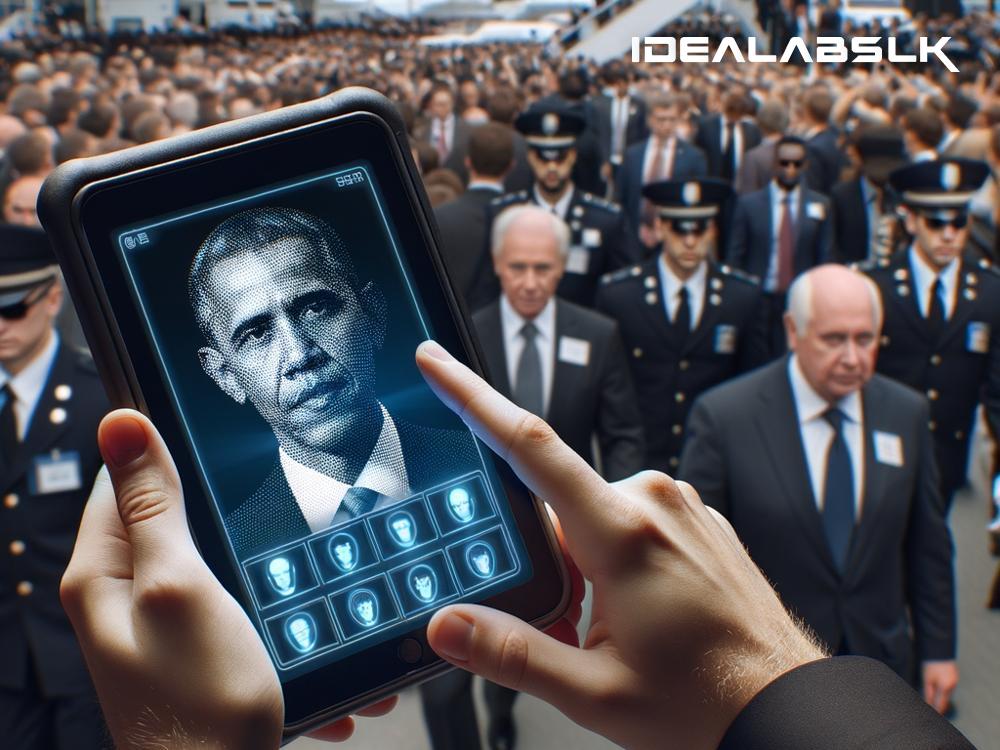Navigating the Stars: The Role of AI in Celebrity Security through Facial Recognition
In the glitzy world of celebrities, where the limelight never fades, the question of security always looms large. From movie premiers to high-profile events, ensuring the safety of stars is paramount. This is where Artificial Intelligence (AI) steps in, particularly through the use of facial recognition technology, to offer a pioneering approach to managing celebrity security.
Facial recognition technology is like having a super smart guard that never forgets a face. It uses computers to 'see' and 'remember' faces by analyzing features such as the distance between the eyes or the shape of the chin. This technology has found a stronghold in various sectors, but its role in celebrity security is transforming the way stars stay safe amidst their dazzle.
The Need for Advanced Security
Celebrities, by virtue of their public presence, attract not just adoring fans but also unwelcome attention that can sometimes escalate into threatening situations. Traditional security measures like bodyguards and manual surveillance are indispensable, but they have their limitations. That's where AI-driven facial recognition comes into play, offering a layer of security that is both sophisticated and unobtrusive.
How AI-Driven Facial Recognition Works for Celebrities
-
Event Security: At crowded events, facial recognition systems can scan the faces in the crowd in real-time, comparing them against a database of known individuals who may pose a threat. This enables security teams to swiftly identify and manage any potential risks, ensuring the event remains safe for everyone, especially the celebrities in attendance.
-
Access Control: For exclusive events or areas restricted only to certain individuals, facial recognition can ensure that only authorized persons gain entry. This means that celebrities can enjoy more private gatherings without the worry of uninvited guests breaching their security.
-
Protection Against Stalkers: Celebrities often deal with the menace of stalkers. AI can use facial recognition to alert security teams if a known stalker is near a celebrity, even in public spaces, providing an opportunity to take preventive action before any harm can occur.
-
Enhancing Personal Bodyguard Efficiencies: While personal bodyguards provide a physical barrier to threats, integrating AI-driven facial recognition enhances their ability to protect. By equipping bodyguards with real-time information about potential threats nearby, they can make better-informed decisions on how to manage the celebrity’s safety.
The Advantages of AI in Celebrity Security
The most significant advantage of facial recognition technology in celebrity security is its ability to provide real-time, dynamic surveillance without being invasive. Unlike constant physical escort, this form of AI operates in the background, sustaining a balance between public appearances and privacy.
Moreover, AI doesn't tire, doesn’t get distracted, and doesn't need breaks. It offers constant vigilance, which is crucial in environments where threat levels can escalate rapidly. It's also scalable – whereas hiring more bodyguards increases costs exponentially, once a facial recognition system is in place, scaling up for larger events or higher security levels doesn't require significantly more resources.
Privacy and Ethical Considerations
The use of AI-driven facial recognition isn't without its controversies, especially concerning privacy rights. The balance between enhancing security and respecting individual privacy rights is a delicate one. Strict guidelines and transparent operation are essential to ensure that the technology is not misused. Moreover, the accuracy of facial recognition systems, particularly across different ethnic groups, has been a point of discussion, emphasizing the need for continuous improvement and rigorous testing.
The Future of AI in Celebrity Security
As technology evolves, so too will the capabilities of AI-driven facial recognition systems. We're likely to see even more sophisticated algorithms that can predict potential threats based on behavior analysis, further enhancing celebrities’ safety. The future might also hold more personalized security measures, where AI systems learn and adapt to the specific security needs and preferences of individual celebrities.
In Conclusion
In the dazzling yet perilous world of fame, AI-driven facial recognition technology is becoming a steadfast ally in managing celebrity security. By offering an intelligent, adaptable, and discreet method of safeguarding individuals, this technology is setting new standards in security measures. As we move forward, the harmonious integration of AI in security protocols promises not just safer environments for celebrities, but also a model that could redefine public security at large. With responsible use and continuous advancements, the role of AI in keeping our stars shining safely seems destined to grow.

